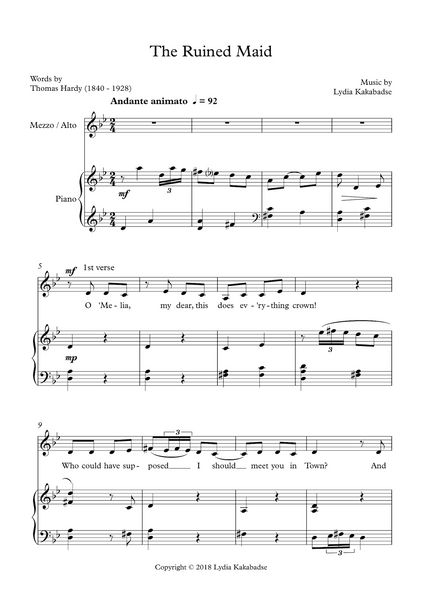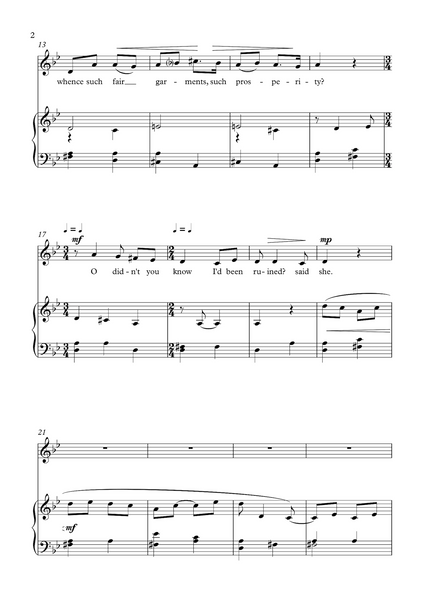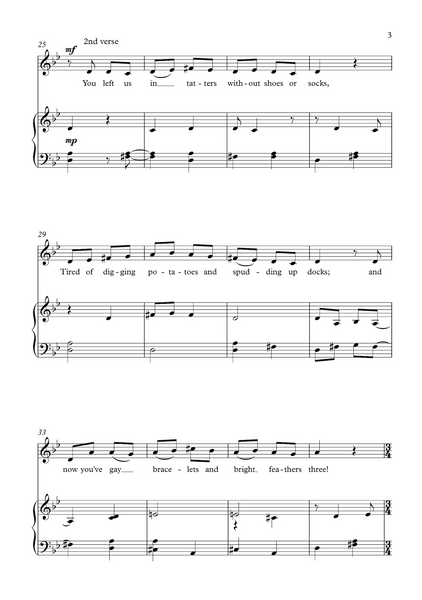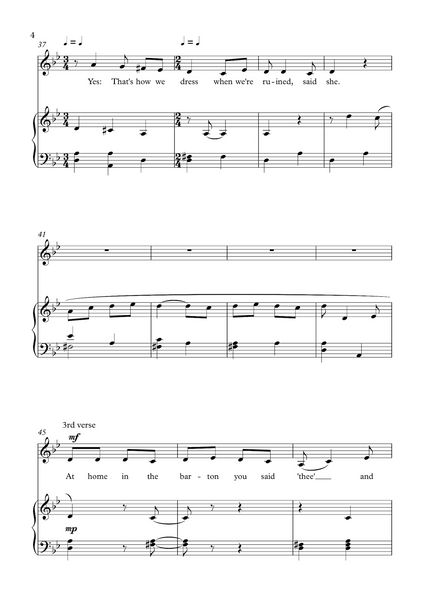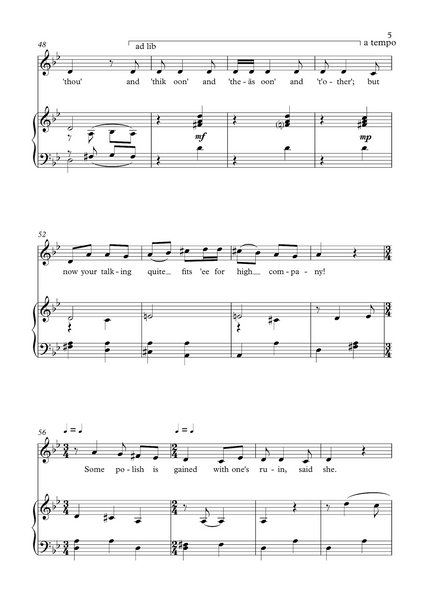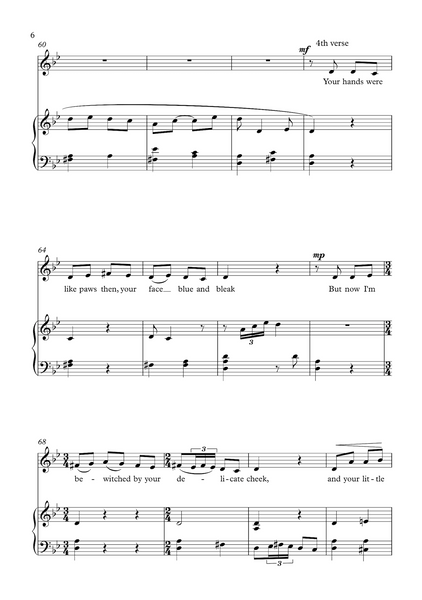Lydia Kakabadse: The Ruined Maid – for mezzo soprano or alto and piano (NXP134)
This is a sheet music edition of The Ruined Maid by the composer Lydia Kakabadse.
Sheet music for mezzo soprano or alto and piano
Music: Lydia Kakabadse
Words: Thomas Hardy (1840–1928)
Score: 10 pages
Audio sample
Preface and programme notes
Thomas Hardy’s satirical poem The Ruined Maid is full of intended irony. The poem highlights the harsh reality and judgemental society of the Victorian era regarding women, who have been morally ruined.
It tells of a “fallen” woman named ’Melia who, tired of being a farm maid, sought her fortune in the city. By chance one day, she meets a farm girl she once worked with, who remarks on her finery and elocution. ’Melia’s matter-of-fact responses, set out in the refrain of each verse, show that she accepts that’s the way things are for a woman who has been ruined.
Both girls, in effect, are ruined but in different ways. Whilst ’Melia is ruined morally but not financially, the farm girl is chaste but without money.
Despite the seriousness of the subject matter, the overall mood is light hearted in ballad style.
Lydia Kakabadse
Words
“O ’melia, my dear, this does everything crown!
Who could have supposed I should meet you in Town?
And whence such fair garments, such prosperi-ty?” –
“O didn’t you know I’d been ruined?” said she.
“You left us in tatters, without shoes or socks,
Tired of digging potatoes and spudding up docks;
And now you’ve gay bracelets and bright feathers three!” –
“Yes: that’s how we dress when we’re ruined,” said she.
“At home in the barton you said ‘thee’ and ‘thou’,
And ‘thik oon’ and ‘theäs oon’ and ‘t’other’; but now
Your talking quite fits ‘ee for high compa-ny” –
“Some polish is gained with one’s ruin,” said she.
“Your hands were like paws then, your face blue and bleak
But now I’m bewitched by your delicate cheek,
And your little gloves fit as on any la-dy!” –
“We never do work when we’re ruined,” said she.
“You used to call home-life a hag-ridden dream,
And you’d sigh and you’d sock; but at present you seem
To know not of megrims or melancho-ly!” -
“True. One’s pretty lively when ruined,” said she.
“I wish I had feathers, a fine sweeping gown,
And a delicate face and could strut about Town!” -
“My dear – a raw country girl, such as you be,
Cannot quite expect that. You ain’t ruined,” said she.







